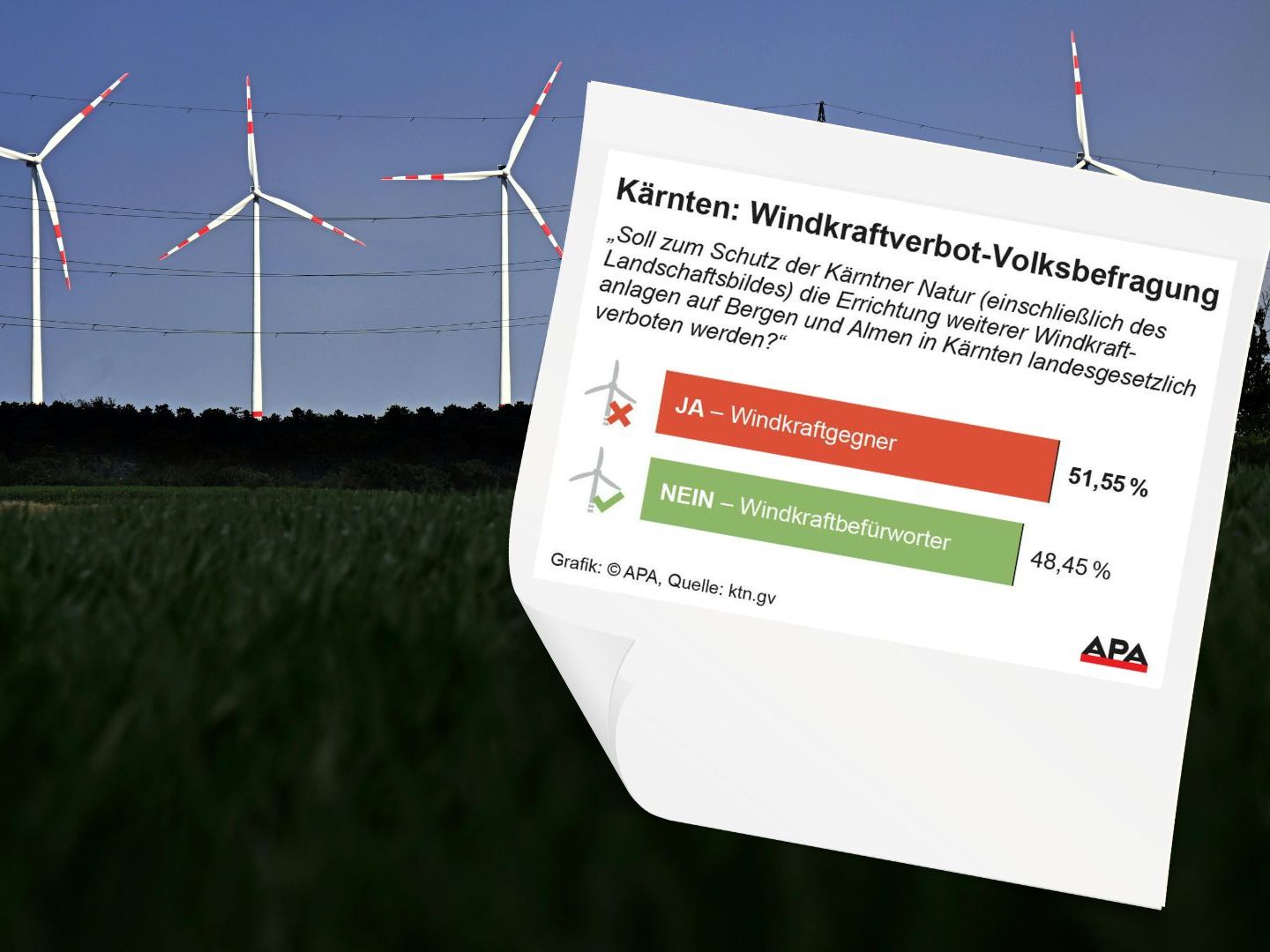VfGH reviews legality of the Carinthian referendum on wind power

The Constitutional Court (VfGH) is reviewing the Carinthian referendum on wind power due to a potentially value-laden question. A narrow majority had voted in January for a ban on new wind turbines. The wording of the question seems to contain a value-laden addition, the VfGH announced on Wednesday. A referendum on wind turbines in Waidhofen an der Thaya in Lower Austria has been annulled by the constitutional judges.
Questioning Under Criticism - VfGH Reviews
The referendum in Carinthia on the expansion of wind power on mountains and pastures was controversial from the start. Critics complained that the question was unclear and suggestive. Challenges from 163 people have now led the highest court to review whether the order of the referendum was in accordance with the law. In the coming weeks, a statement from the state government will be sought. The challenges are justified by an "unclear, ambiguous, and suggestive question," according to the VfGH announcement on Wednesday. Specifically, the question was: "Should the construction of additional wind power plants on mountains and pastures in Carinthia be prohibited by state law to protect Carinthian nature (including the landscape)?"
The VfGH found that this wording seems to contain a value-laden addition. Only one interest, the "protection of Carinthian nature (including the landscape)," is highlighted, which could steer the answer in a certain direction. This does not fulfill the purpose of determining the will of the eligible voters. "The question also seems to violate the prohibition of suggestive questions enshrined in the Carinthian Referendum Act," according to the VfGH.
Referendum Led to Temporary Halt of Wind Power Expansion in Carinthia
51.55 percent were in favor of the ban. The state parliament then passed a new spatial planning law with stricter rules for wind power expansion. Until zoning for wind power is developed, a construction freeze for newly submitted wind turbines should apply.
Intense Criticism from the Opposition in Carinthia
"Legally, the result of the referendum was neither binding nor enforceable. In realpolitik, however, there was an agreement among all parliamentary factions in Carinthia to include the result in further planning," the state press service announced. The decision of the Constitutional Court to review the referendum will be "acknowledged with respect."
FPÖ leader Erwin Angerer said in a reaction: "No matter how the Constitutional Court decides, the result of the referendum is clear to us: The people of Carinthia do not want wind turbines on Carinthia's mountains and pastures!" The result of the referendum should be respected. Olga Voglauer, state spokesperson for the Greens, accused the state government of SPÖ and ÖVP of not having properly examined the question in advance and stated: "A political blunder of the highest order!" Democratic instruments thrive on fairness and legal accuracy. "Anyone who handles this carelessly risks not only a questionable voting result but also the credibility of political participation."
Misleading Referendum on Wind Turbines Also in Lower Austria
The referendum in the Lower Austrian town of Waidhofen an der Thaya from March 2024 has already been annulled. The question - "Should the municipal council decide on the necessary measures within its own sphere of influence so that three to a maximum of five wind turbines can be erected and operated in the municipal area of the town of Waidhofen an der Thaya (Predigtstuhl area)?" - was, according to the Constitutional Court, "misleadingly formulated." The challenge was therefore upheld. According to the constant jurisprudence of the Constitutional Court, the question presented in a direct-democratic procedure must be "clear and unambiguous to exclude misunderstandings as much as possible," explained the highest court.
(APA/Red)
This article has been automatically translated, read the original article here.





